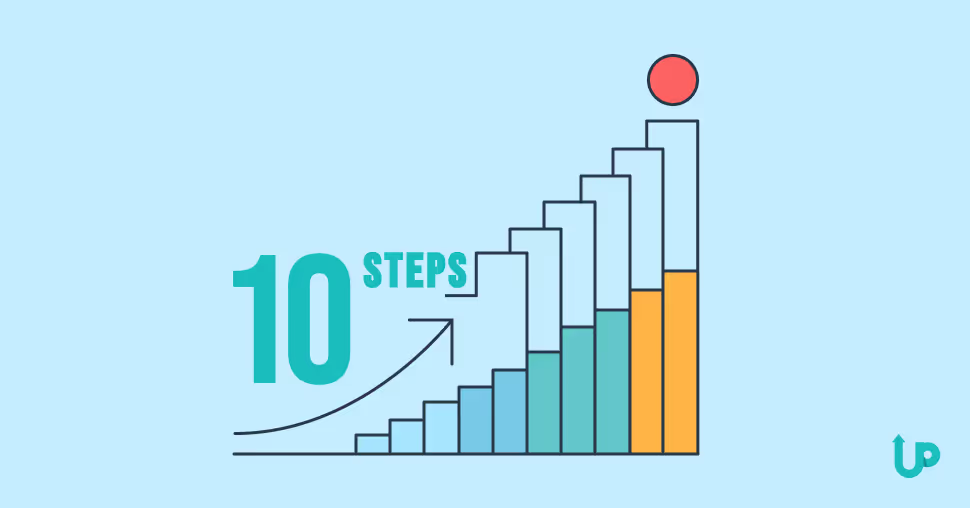Knowing your audience better is the key to success.
Because if you consider their preferences, you can make your marketing campaigns much more effective and targeted. You get the idea.
Speaking of your audience’s preferences, a topic we need to tackle today is market research… in the context of contests.
“But what exactly do you mean, Wilco?”
I’m here to tell you that you can do market research by running a contest. If it sounds unbelievable, keep reading this post. This article will discuss:
- Why you should be doing market research
- Types of market research
- A 3-step process for conducting market research within your contest
Why Conduct Market Research?
Market research is basically gathering information about your audience so that you can make better decisions in your business. These pieces of information can be anything from their demographics to interests to opinions.Knowing these things about your audience will help you:
- Identify new potential customers to target
- Find out how you can serve your customers better than your competitor
- Build better products
- Plan new marketing strategies
- Create content that makes them take action
- Improve your customer service
Let’s consider an example: If you discovered that the majority of moms preferred a keepsake gift as a Mother’s Day present, you could write a blog post that lists the best keepsake ideas targeted to millennials or sell affordable keepsake gifts days before the occasion.
Types of Market Research (and Which One to Use for Your Contest)
Market research data can either be primary or secondary. Here’s what each type means:
Primary data - This is the kind of data that you didn't collect before. Methods include running a survey, conducting one-on-one interviews, or observing how people interact with your offer or content.
Secondary data - This refers to information that already exists which makes the data collection process quick convenient. Sources include government reports, trade journals, competitor websites, and other reputable websites.

So which of these research methods can you do while running a contest? The answer is running surveys. In the next section, I will show you how to survey your contest participants.
How to Do Market Research Within a Contest
Most people run online contests to grow their email list, raise brand awareness, and generate sales. But did you know that you can also use a contest as an opportunity to survey participants?
It might sound like an impossible plan because as you already know, people in general dislike filling out surveys. Surveys can take a lot of time to complete.
So here’s what you need to do. Keep reading.
Step 1: Offer a Relevant Contest Prize
Before you get started, the one thing you should do is to make sure that your contest is aimed at your target market.
In other words, it’s important to have a basic understanding of your contest entrants. By doing this, you can attract those who are likely to participate in your survey. (Tip: Gather secondary data from reliable resources such as Google Trends, YouGov, or Pew Research Center).
Start attracting the right contest participants with the right prize. How many times have you witnessed a contest that offers an unrelated and expensive prize - like a dream getaway or an iPad? While having such prize builds more hype and gets attention faster, only a small percentage will convert into your customers.
Your prize doesn’t have to be as popular, but it needs to be what your target audience wants.
Related: 50 Creative and Small Prize Ideas for Different Industries
Step 2: Incentivize Survey Participation
After attracting your contest participants with the right prize, these people are now ready to enter their email address on your landing page and share the contest with their friends. Normally, this would be the set-up.
However, since you want to conduct a survey within your contest, you will need to slightly change the structure of your contest in so that you’d add a step where your contest entrants can fill out a survey!
The question is, how do you actually make people want to participate in that survey?
Answer: Incentivize that action by assigning contest points to it that will increase their chances of winning the contest. When you assign points, make sure that the points are high enough to motivate them to complete.
A Case Study That Successfully Conducted a Survey Within a Contest
For your inspiration, I want to share a case study of one of our UpViral users. David Fraser of Bunkie Life recently ran a contest where he gave away a bunkie as the prize. Since he also wanted to survey his contest participants, he used UpViral’s Custom Actions.
(In case you don’t know what Custom Actions is, it’s a feature within the UpViral tool that allows you to incentivize your audience with points for taking a specific action. This action can be anything that will help you achieve an end goal.)

The screenshot above shows David’s Custom Actions set-up. He assigned 250 points for answering a survey questionnaire - he gave the highest points for this action which clearly meant that it was a priority in his campaign.
The Result: 1,998 contest participants took the time to answer the survey because they wanted more points to boost their chances of winning the bunkie prize.
(Read the Bunkie Life case study here.)
This all goes back to choosing the right prize, that your audience would be willing to take your survey in exchange for more points.
Whether to Use Open-Ended or Closed-Ended Questions
Closed-ended questions make it easier for people to complete the survey. Also, they give you data that’s easier to analyze because the responses are consistent.
On the other hand, open-ended questions provide you with opinions that allow you to gain insight into new concepts or ideas that can also be beneficial to your business.
Step 3: Leverage the Data You’ve Collected
Assuming that you got many people to answer your survey, the next step is to analyze the data you gathered and use it to achieve whatever goal you want to achieve.
As I mentioned earlier, you can use survey results to boost your future marketing campaigns, improve your products, and more.

Golden Nugget: Use the data to get better results for your current or future contest if you plan on running another contest soon! For example, if you’re running a Facebook ad to attract more contest participants, you can use the additional info about your current contest audience to refine your Facebook ad targeting or create a Lookalike Audience.
Final Thoughts
Not everyone conducts market research (through surveys) within a contest because surveys can drag on too long, even if we know how valuable they are to a business.
Offering more points in exchange for completing your survey reduces friction. The key is to make your contest prize so compelling and relevant that people will do whatever it takes to win.
That said, you’ll need to have a basic understanding of your audience to choose the right prize. This is easily done by gathering secondary data - researching competitor websites, government reports, etc.) and checking out your competition.





.png)